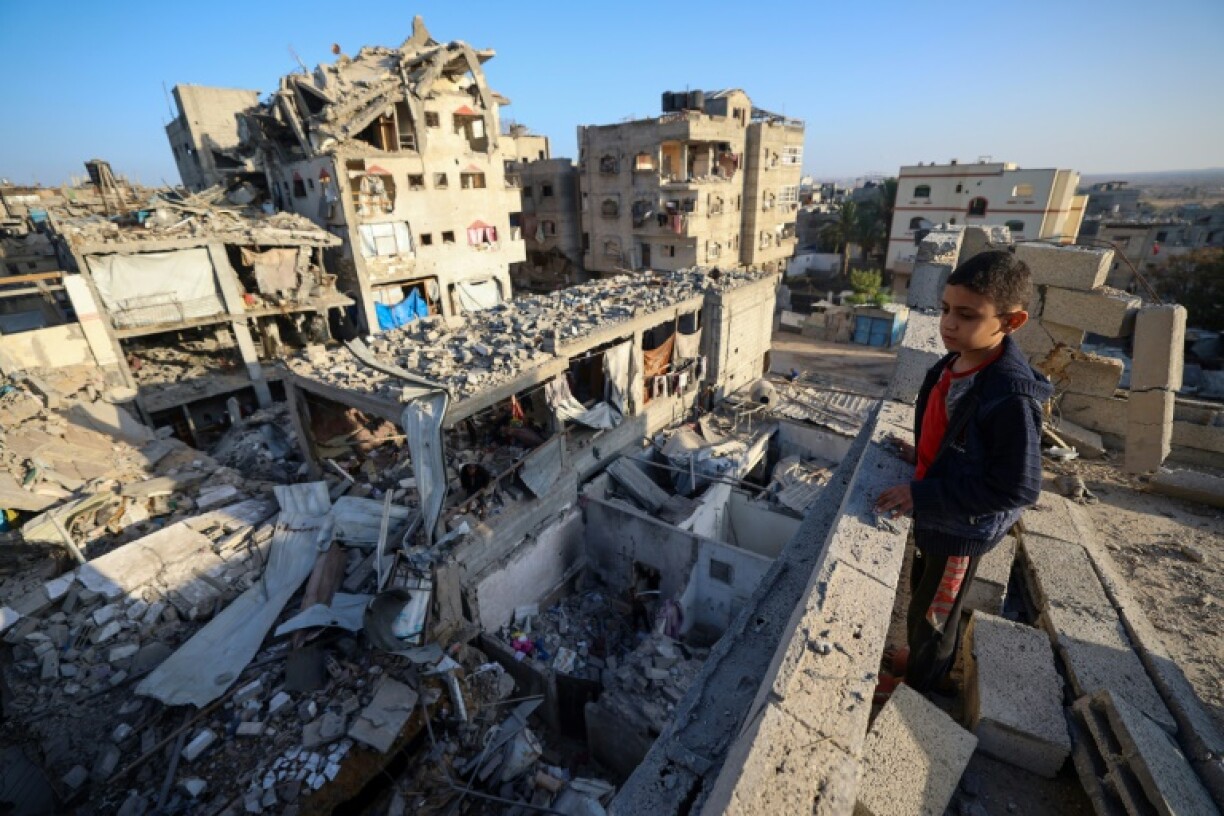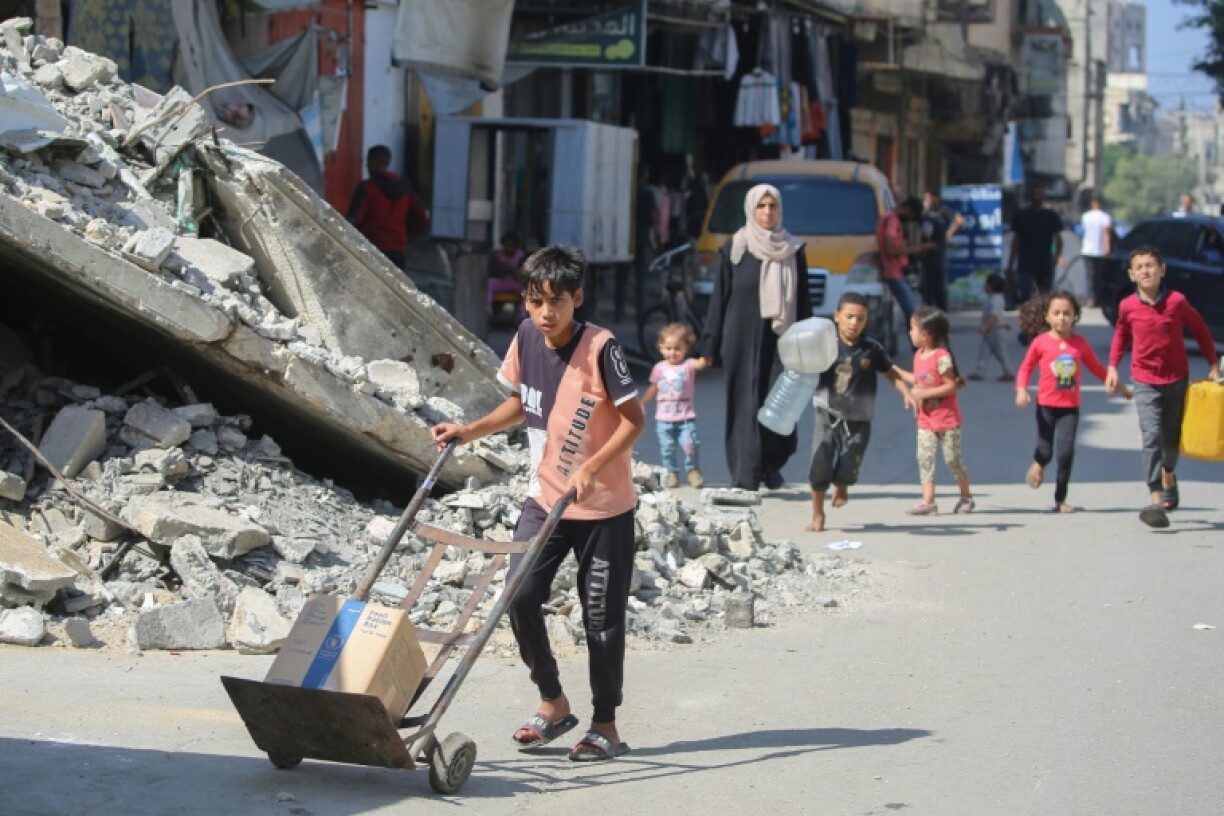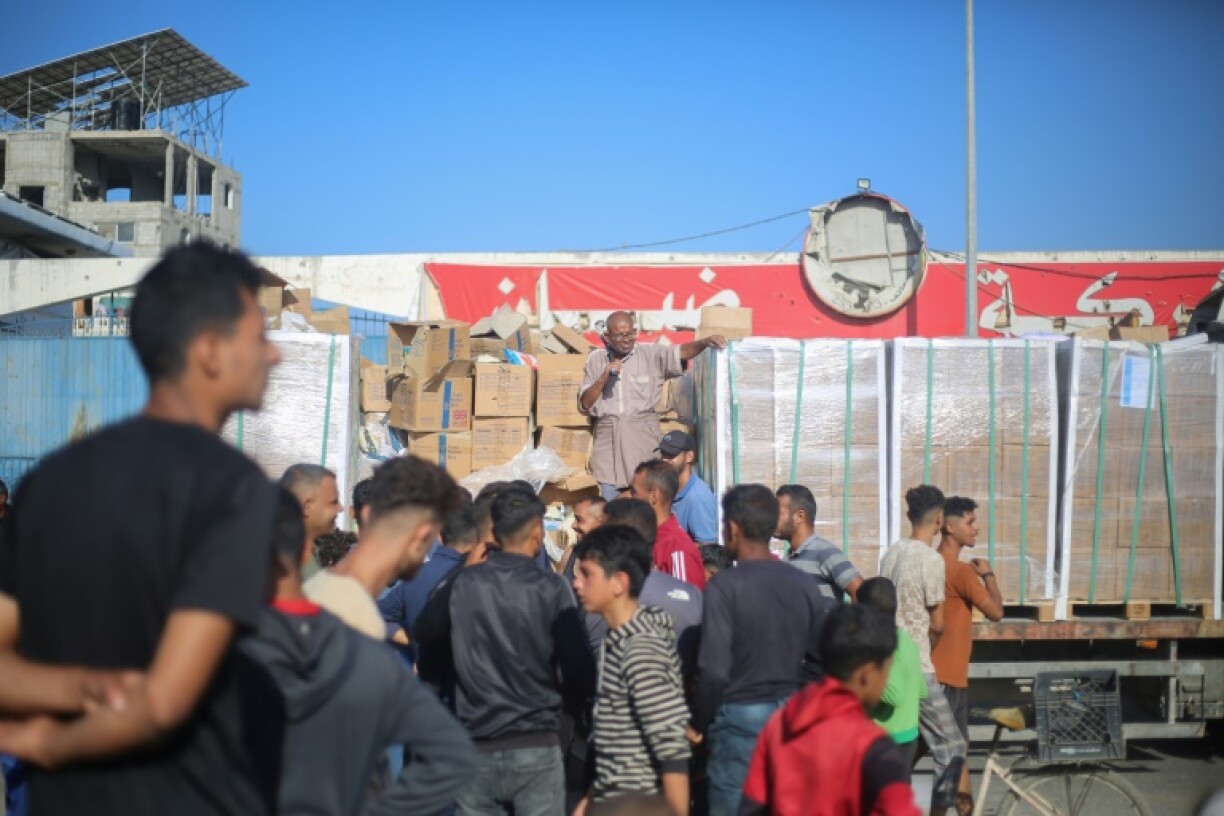
Two of the United States’ top envoys to the Middle East met Israeli Prime Minister Benjamin Netanyahu on Monday after weekend violence threatened to wreck a fragile US-brokered ceasefire in Gaza.
The sit-down came as Israel reopened the Kerem Shalom border crossing into Gaza for aid shipments, a security official and a humanitarian source said, after the entry point was closed briefly on Sunday following the killing of two Israeli soldiers.
In response, Israel carried out dozens of strikes targeting Hamas across Gaza -- using 153 tonnes of bombs, according to Netanyahu -- and accused the militant group of “a blatant violation” of the truce, an accusation it denied.
Both sides insisted that they remained committed to the ceasefire and US President Donald Trump, who helped broker the deal, told reporters in Washington that as far as he was concerned, it was still in effect.
Trump’s special envoy Steve Witkoff and adviser son-in-law Jared Kushner met Netanyahu on Monday to discuss “developments and updates in the region”, Shosh Bedrosian, spokeswoman for the prime minister’s office, told journalists.
Bedrosian added that US Vice President JD Vance and his wife were also due to visit Israel “for a few days and will be meeting with the prime minister”.
Netanyahu later told the Israeli parliament that Vance was due to arrive on Tuesday for discussions on “two things... the security challenges we face and the diplomatic opportunities before us”.
“We will overcome the challenges and seize the opportunities,” he added.
- Hostage remains -
Gaza’s civil defence agency, which operates under Hamas authority, said Israeli strikes killed at least 45 people across the territory on Sunday alone.

Four hospitals in Gaza confirmed the death toll to AFP, while Israel’s military said it was looking into the reports of casualties.
Media restrictions in Gaza and difficulties in accessing many areas mean AFP is unable to independently verify the tolls provided by the civil defence agency or the Israeli military.
The army said that, after carrying out air strikes in response to a deadly attack on its soldiers, it had “renewed enforcement of the ceasefire” late Sunday but would “respond firmly to any violation of it”.
Hamas denied knowledge of any attack, with one official accusing Israel of fabricating “pretexts” to resume the war.
A Hamas delegation was in Cairo on Monday for talks with Qatari and Egyptian mediators on the continuation of the truce, according to a source close to the negotiations.
The meetings will also touch on an upcoming intra-Palestinian dialogue hosted by Egypt aiming “to unify the Palestinian factions”, the source told AFP.
As part of the ceasefire deal, Hamas has released the 20 surviving hostages it held and is in the process of returning the remaining bodies of those who have died.
Hamas says it needs time and technical assistance to recover some of those remains, but its armed wing said it would hand over on Monday evening the remains of another hostage recovered the day before.
This would be the 13th deceased hostage returned by Hamas since the ceasefire took effect.
Israel has so far returned the bodies of 150 Palestinians in exchange for the hostages’ remains, according to the health ministry in Hamas-run Gaza.
Israel has linked the reopening of the strategic Rafah crossing to the recovery of all of the deceased.
- ‘War returned anew’ -
The ceasefire, which began on October 10, halted more than two years of war between Israel and Hamas.
The deal also proposed an ambitious roadmap for Gaza’s future, but it has quickly faced challenges.
Palestinian witnesses told AFP clashes erupted Sunday in the southern city of Rafah in an area still held by Israel.
Abdullah Abu Hasanin, 29, from Al‑Bureij camp in central Gaza where Israel also launched strikes, said it was “as if the war has returned anew”.

On Sunday, Vance urged Gulf countries to establish a “security infrastructure” to ensure that Hamas disarmed -- a key part of the peace deal.
Under Trump’s 20-point plan, Israeli forces have withdrawn beyond the so-called Yellow Line. Israeli troops have fired on Gazans “approaching” these positions several times since the ceasefire was declared.
The withdrawal to the Yellow Line leaves Israeli forces in control of around half of Gaza, including the territory’s borders, but not its main cities.
The war, triggered by Hamas’s October 7, 2023 attack on Israel, has killed at least 68,216 people in Gaza, according to the health ministry in the Hamas-run territory, figures the United Nations considers credible.
The data does not distinguish between civilians and combatants but indicates that more than half of the dead are women and children.
Hamas’s 2023 attack resulted in the deaths of 1,221 people, mostly civilians, according to an AFP tally based on official Israeli figures.
burs-dc-acc/smw